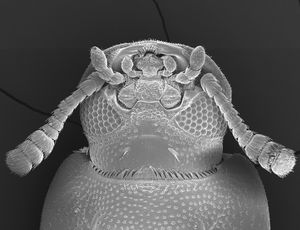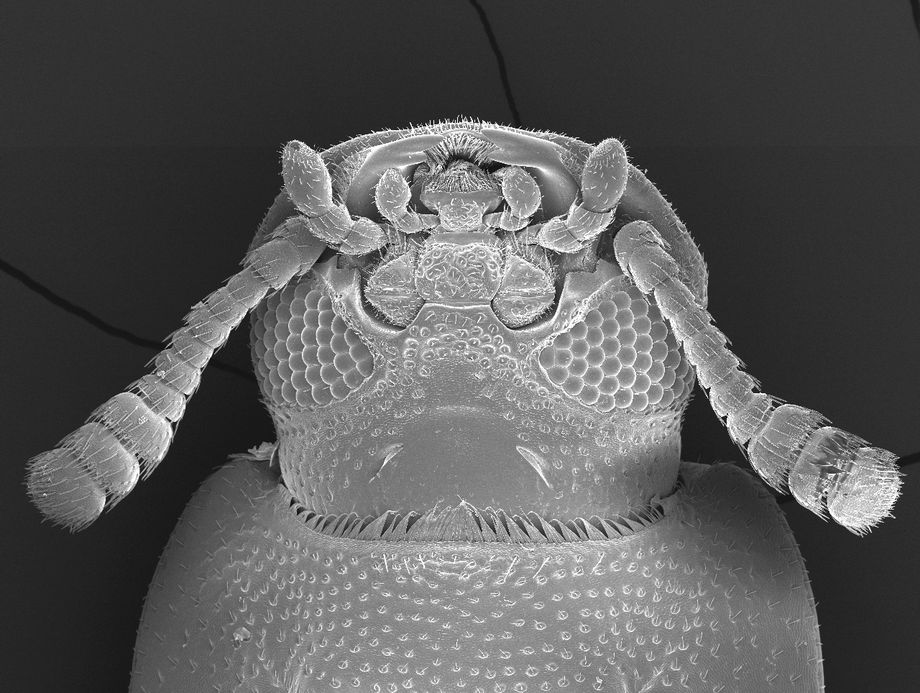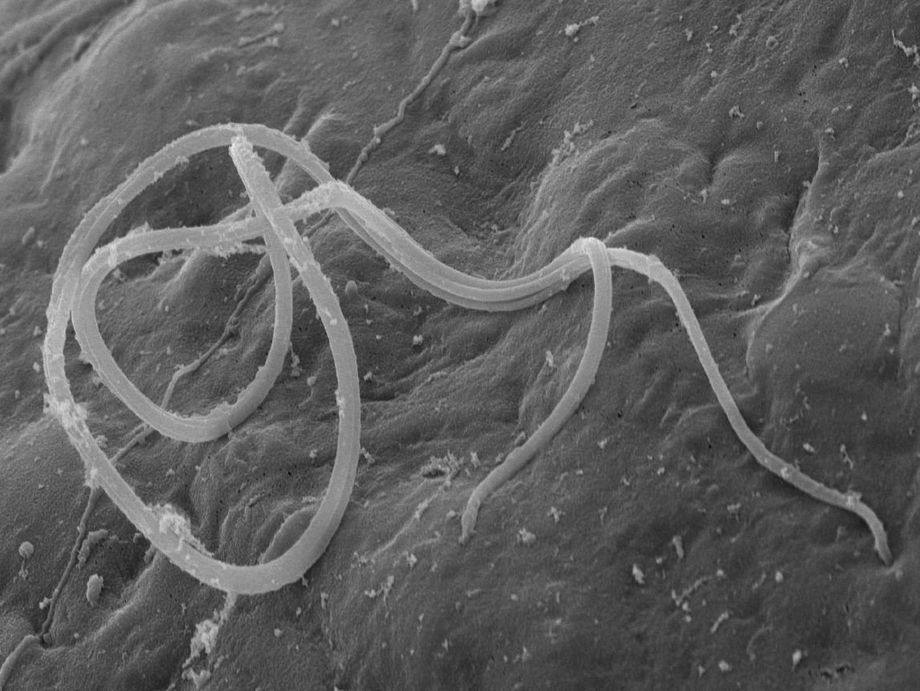
A research team featuring Dr hab. Łukasz Michalczyk from the JU Faculty of Biology is investigating the impact of temperature on insects on the case of red flour beetle, a small worldwide pest of stored products, particularly food grains and their derivatives. The unsettling results of their research were published last week in Nature Communications.
Simulating the increasingly occurring heat waves happening due to climate changes, the scientists have raised the temperature in their laboratories by 5–7 degrees Celsius for the duration of a week. As it turned out, even this short period of increased heat has caused a radical decline in male red flour beetle reproductive capabilities. Not only did it decrease their fertility and sperm competitiveness, but in the long run it may even lead to total sterility.
‘It’s been known for a long time that males of many warm-blooded species are adversely affected by elevated temperature. There is a reason why mammalian testicles are located outside of their bodily cavity: animals need to keep them cooler than the rest of their internal organs. However, in contrast to vertebrates, very little is known about the fertility of invertebrates, which are solely cold-blooded. Our research shows that global warming might have a detrimental effect on many more organisms than we originally thought’, explained Dr hab. Łukasz Michalczyk.
What surprised the biologists was the fact that the negative effects are also visible in the offspring of males subjected to heat waves. These insects were less fertile and had a shorter lifespan than the progeny of males living in optimal conditions. The mechanisms leading to this outcome are currently unknown, but the research results published in Nature Communications are particularly alarming in the context of climate change. Insects plan an important role in our environment as pollinators and source of food for many types of animals. Should their population become scarce, we may face an ‘ecological Armageddon’.
‘Since the offspring of weakened red flour beetles is also affected by elevated temperature, even local heat waves could potentially have a much greater impact than we estimated, both spatially and temporally. These detrimental effects can persist for many years. Lower temperature in the coming seasons does not guarantee increased fertility due to species migration. Additionally, there is the separate but pressing issue of climate changes on humans’, stressed the biologist.
Dr hab. Łukasz Michalczyk graduated from the JU Institute of Environmental Sciences. He received his PhD in 2012 and subsequently did a post-doctoral internship under the supervision of Prof. Matthew Gage at the University of East Anglia. He works at the Department of Entomology of the JU Institute of Zoology and Biomedical Research. He conducted research studies in several foreign research institutions, such as the University of St. Andrews, University of Copenhagen, and University of Western Australia. Since 2014, he publishes an Internet bulletin Tardigrada Newsletter dedicated to tardigrade studies.

Head of red flour beetle (Tribolium castaneum) in scanning electron microscope. Photo: Dr hab. Łukasz Michalczyk

Red flour beetle sperm in scanning electron microscope. Photo: Dr hab. Łukasz Michalczyk





